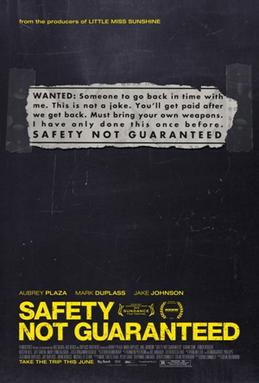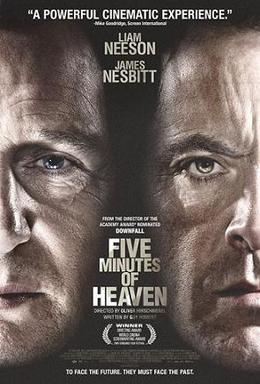The
wind had howled itself into full-out rage for sure. The snow was whipping
around with no say at all about where it got to go. Some of them snowflakes
never even got to land, I’m sure. That’s how hard the wind was blowing. Maybe
like it wasn’t gonna get another chance, like this was the last night it had to
howl, and it wasn’t gonna waste it.
Our
house had cracks. The wind whistled in these cracks and the corners of the
house filled with little piles of snow. At first they’d melt off right away,
because Papa had the fire burning as high and as fierce as he could. This made
Mama nervous, because the sparks were all hanging up there in the rafters like
orange stars, and she thought the roof might catch on fire. Papa knew better. Some
things Mama knows better, but Papa knows fires. But eventually Papa threw the
last log on the fire, and a few minutes after that the snow came into the
corners again, and this time would not be scared into melting and running off. Papa
eyed it, like he would like to do something mean to it if he could, but he
couldn’t without getting out of the wall of blankets he had wrapped around all
of us. Mama had her arm around him, and he had his hands on our shoulders, one
on Annie’s right shoulder and one on my left, holding us close. We were all
sharing what little warmth there was, sitting as near to the fire as we could
without singeing the blankets or our hair. Still the cold was creeping in,
though, as if it was envious of us getting to be all huddled together and warm,
or just tired of being locked outside.
Locked
outside. The horses were out there too. I remembered this all of a sudden. I
don’t know whether it was because of that thought about the cold, or because
for a moment one tongue of flame looked to me just like the head and neck of Bonnie.
“Papa,”
I whispered into his ear over the crack of the fire and the desperate howling
of the wind. “Papa, Bonnie and Neptune are still out there.”
Papa
shifted his big hand to the top of my head and brushed my hair. “They’ll be
fine out there,” he said. “They’ve lived through worse than this.” He coughed. “Don’t
you fret about them, child.”
“Just
watch the fire,” said Mama. “Look how bright it is! Always dancing and changing
shape.”
But
I had seen too many fires too many nights to think about it as anything new. It
couldn’t distract me for more than a few moments at a time. My mind kept
turning back around to Bonnie and Neptune out there, but especially Bonnie,
freezing to death in her thin skin of hair. Papa had told me that they flicked
their tails to get rid of flies in the summer. Now I imagined them flicking
their tails to knock the snow off their backs. But it kept coming down, coming
down, swirling around, and dropping on their backs like when it falls from a
laden tree branch. Their tails could not flick fast enough. Soon they would be
buried. That horrible thought made me tremble. What would it be like to die of
being too cold?
“Papa,”
I said again, very softly this time. “What if Bonnie freezes to death? What if
our horses freeze out there? It’s very cold.”
“Yes,
it’s cold,” said Papa. “But you shouldn’t worry. They can handle it. They're smart. They’ll
get themselves to the leeward side of the house, where the wind won’t hit them
so bad, and they’ll just kinda hunker down there. They’ll be alright.”
But
that icy tingling in my mind could not be so easily dismissed. “But the wind is
going in swirly circles. It will go right around the house and hit them anyway.”
“Shhh,”
said Mama, reaching over and putting a finger to my lips. “Quiet now. Listen to
the fire.”
It
was crackling, and I had heard Mama calling that a merry sound before, which
means like Christmas, all fun, but right now that same crackling sounded mean
and stingy. The horses could not share in its light. The fire was struggling
itself, against the wind and the cold. It had to be mean just now, to defend
itself. That’s what I told myself. But my mind went back to Bonnie, nakedly standing,
shifting her hooves in the cold.
Then
there came a very strange sound. Papa and Mama’s faces turned toward it. Papa
looked surprised, and not very happy. Mama looked confused. It came again. It
sounded like when Mama used sandpaper on her fingernails, only bigger. This
time the thin walls of our house seemed to shiver, as if they too were cold.
“What’s
going on?” Mama asked. “What is that?”
Papa
groaned. “It’s the horses. They’re rubbing their backs against the lee wall,
itching themselves, maybe to make some warmth.”
The
walls were definitely shaking, especially the lee wall, as Papa called it.
“Is
the house going to fall down?” asked Annie.
“No,”
said Papa with a frown. “It’s not.” He began to get out from behind the wall of
blankets. He peeled back the layers and stood up. He strode to the doorway and took
his bullwhip from the hook on the doorpost. The braided leather gleamed like a coiled
snake in the firelight.
“Where
are you going?” I asked.
“Darling,
I’ve got to stop the horses pushing on the walls, or we’re not going to have
any more walls, and then we will all freeze.”
He
took one of the blankets, wrapped it tightly around his shoulders, and went out
the door. Snow came in behind him in an angry burst. The wind slammed the door.



